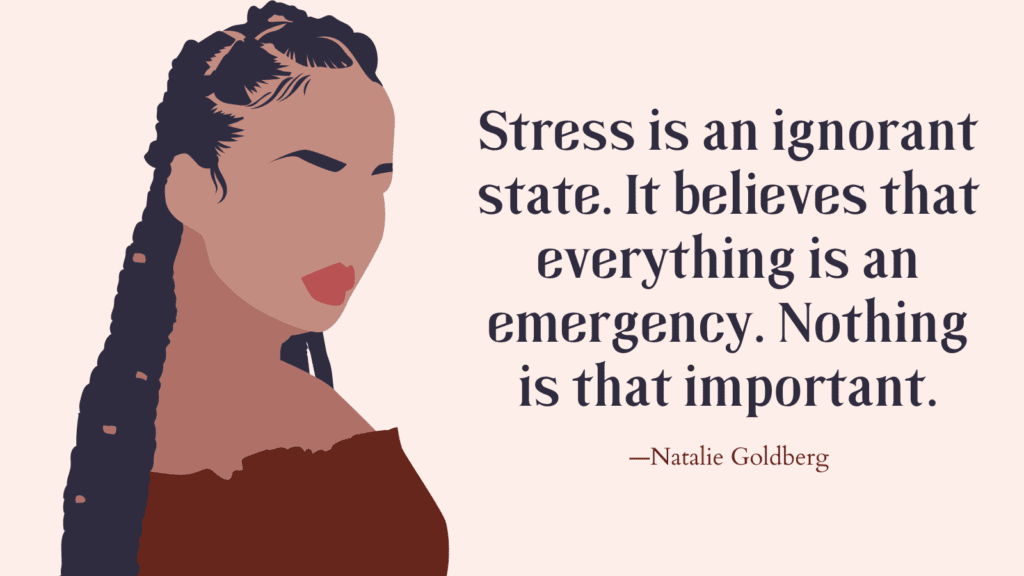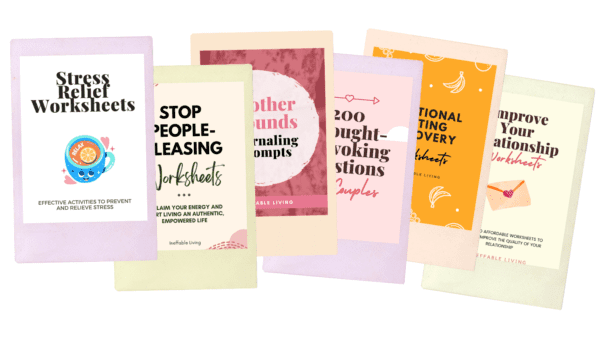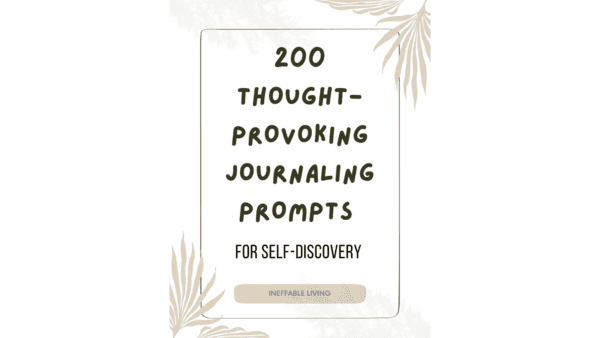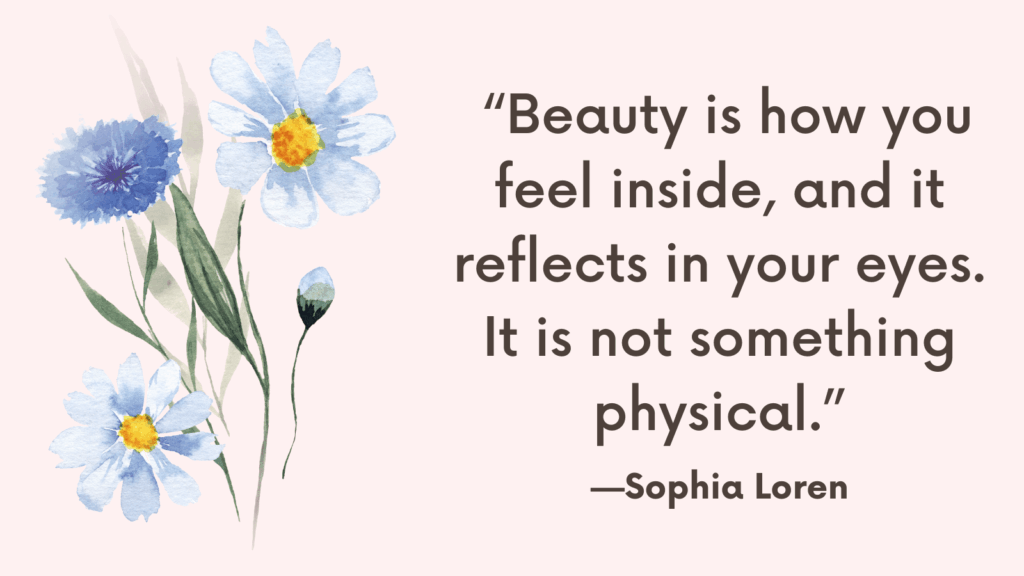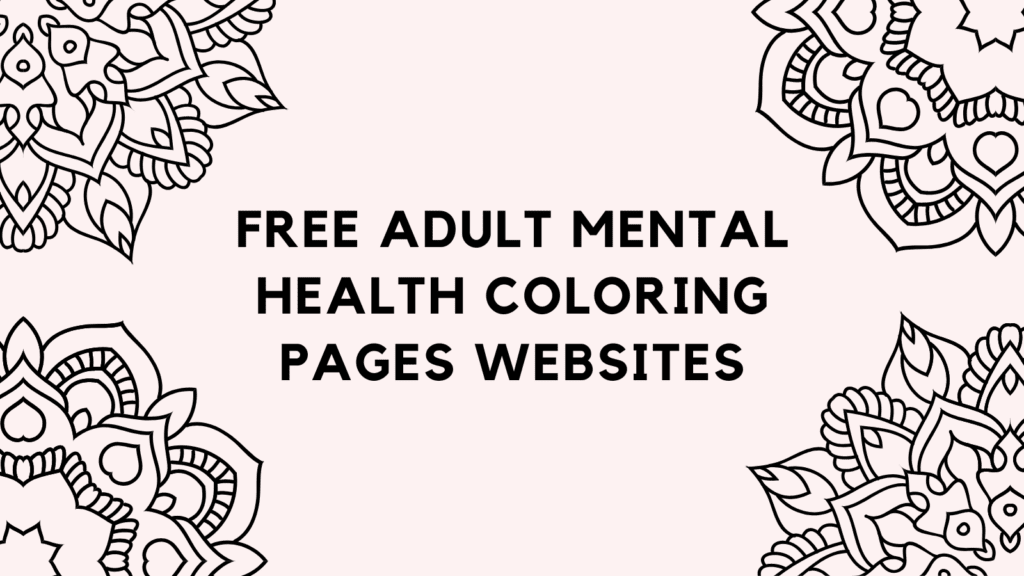This post contains some of the best self care ideas to try this weekend
Self-Care Is Not About Time Management
Many people believe that their problems could be solved with more time.
They imagine that an extra weekend is enough to get things done and finally relax.
But self-care isn’t about taking the weekend off, nor is it something you do once you check off every item on your to-do list.
What Is Self-Care?
Self-care is about creating a life that is aligned with your values.
It’s about having the courage to make changes that reflect your authentic self.
To do this, you need to start tuning in to yourself, listening to your body, and honoring your needs.
At times, you may need to reach out to a friend. At other times, a nap or a shower may be all you need.
But self-care isn’t only for times of need. Self-care is a practice. It’s small things you do for yourself every day until they become habits that sustain your well-being and emotional resilience.
35 Self Care Saturday Ideas
The following techniques work by changing anxious symptoms, thought patterns, and emotional states to calm ones.
This simple shift can cause big changes in your body. Your heart rate slows, breathing deepens, and muscles relax. Over time, as you practice these techniques, it becomes easier and easier to go back to your relaxed state.
1. Wake Up Naturally
Wake up without an alarm clock, at least on the weekend. If you’re a night owl at heart, allow yourself to have a weekend lie-in.
2. Drink More Water
A lack of hydration can affect all your body functions. It can cause dry skin, headaches, poor concentration, etc. Make sure you have enough water every day.
The National Academies of Sciences, Engineering, and Medicine determined that an adequate daily fluid intake is: About 15.5 cups (3.7 liters) of fluids for men. About 11.5 cups (2.7 liters) of fluids a day for women.
Read: Best 100 Self Care Affirmations To Honor Yourself
3. Breathe Deeply
When you’re anxious or angry, you tend to have high-intensity, fast-paced breathing.
Breathing deeply helps you go from an emergency state to a relaxation state. It helps you go from feeling anxious to calm.
Step 1: Place one hand on your belly and inhale through your nose. Direct the breath to the belly and feel your belly expand.
Step 2: Fill your belly to what you can comfortably hold.
Step 3: Exhale slowly and smoothly through your nose.
Step 4: Repeat ten times or as many times as you need to regulate your breathing and calm your nerves.
The goal is to allow deep breathing to become second nature to you.
4. Meditate
Meditation doesn’t need to be complex or complicated.
Just sit, breathe deeply and slowly, and focus on your breath.
Try not to let the mind wander. If it does, just bring it back to the breath.
You can help yourself relax by focusing on the things you’re grateful for or repeating a simple mantra with each inhale and exhale, such as “I am relaxed,” or, “I am grounded.”
Related: Getting Started with Mindfulness: 6 Simple Mindfulness Practices for Daily Life
5. Practice Grounding Techniques
Grounding anchors us safely in the present moment.
Standing Grounding
1. Stand with feet shoulder-width apart.
2. Slowly rock forward and sense weight over the balls of your feet.
3. Then rock backward and sense the weight shifting to your heels.
4. Stand tall, with relaxed shoulders, straight spine, uplifted chin, and expanded chest, and imagine that your legs are the trunk of a tree, and roots grow deeply into the ground from your feet, giving you a sense of security.
Grounding In The Body
1. Place one hand on your heart and experiment with different kinds of touch—firm, soothing, etc.—until you find the kind of touch that feels best.
2. Place the other hand over your belly and take your time to track sensations.
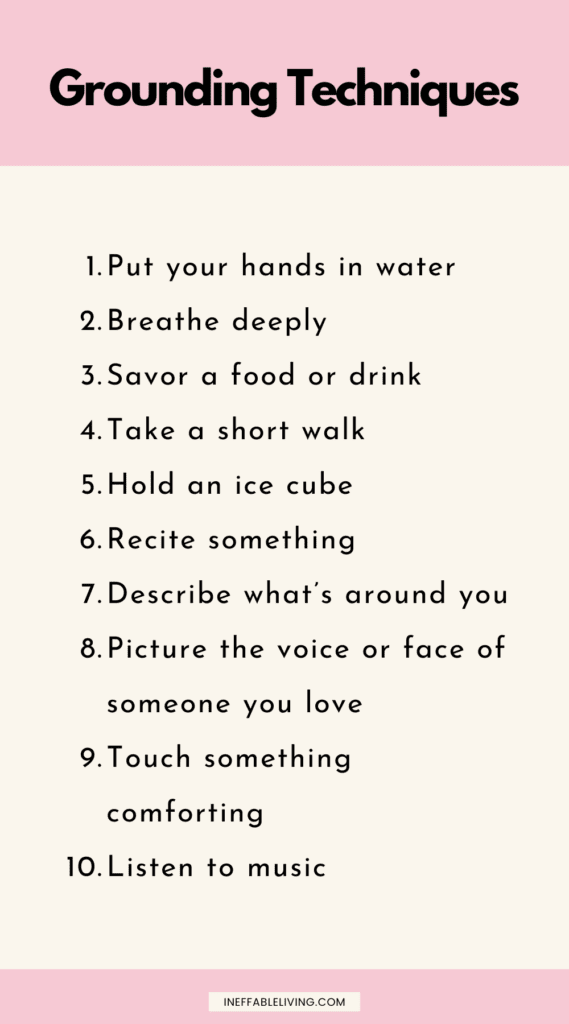
6. Progressive Muscle Relaxation
Progressive muscle relaxation (PMR), a simple technique developed by Edmund Jacobson, a Chicago physician, helps you relax your muscles one group at a time.
PMR has proven to reduce tension headaches, backaches, tightness in the jaw, tightness around the eyes, muscle spasms, high blood pressure, and insomnia.
Note: If you have injured muscle groups, consult your doctor before attempting progressive muscle relaxation.
How to Do PMR?
The idea is to tense each muscle group hard for about ten seconds, and then to let go of it suddenly. Give yourself fifteen to twenty seconds to relax and notice how the muscle group feels when relaxed in contrast to how it felt when tensed, before moving on to the next group of muscles.
Here are some guidelines for practicing progressive muscle relaxation (PMR):
1. Find a quiet location where you won’t be disturbed to practice.
2. Practice on an empty stomach. Food digestion tends to disrupt deep relaxation.
3. Practice at regular times.
4. Get in a comfortable position in which your entire body, including your head, is supported. If you are feeling tired and sleepy, sitting up would be preferable to lying down.
5. Loosen any tight garments and take off your watch, glasses, shoes, and so on.
6. Make a decision to try and focus on the exercise and each time your mind wanders, gently, bring your attention back to your body sensations.
7. Assume a detached attitude. Do not judge your performance.
8. Tense a particular muscle group (shoulders, chest, stomach, lower back, buttocks, and thighs), without straining, for seven to ten seconds.
9. When you release a particular muscle group, do it abruptly, and then relax as you enjoy the sudden feeling of limpness, for at least fifteen to twenty seconds before moving on to the next group of muscles.
10. As you relax a particular muscle group, repeat to yourself a relaxing phrase, like “I am relaxing,” “or “I let the tension flow away.”
11. Practice for at least twenty minutes every day.
Related: 7 Trauma Release Exercises To Support Your Recovery After Trauma
7. Create a Personal Affirmation
Choose a personal affirmation for yourself and declare it ten times each morning. Affirmations are positive, in the present tense statement such as “I am at peace.” Self-affirmation has been proven to enhance performance and improve problem-solving under stress.
8. Throw Open a Window
Let some sunlight in and enjoy the weather. Don’t let bad weather put you off, even rain or snow can be as refreshing for your soul as the bright sunlight.
9. Write Your Worries Down
Whether it was a to-do list or worries, writing things down takes them off of your mind. Writing your worries down also helps you put them into perspective and helps you think about them more rationally.
10. Listen to Classics
Research revealed that listening to classics such as Pachelbel and Vivaldi helps people relax much more quickly and lower their stress levels.
In contrast, listening to pop or jazz music had the same restorative effect as total silence.
11. Allow More Humor Into Your Life
Laughing has been proven to instantly boost your mood and improve your health.
So make sure to get your regular dose of humor by watching a funny video or any other humorous material.
Researchers recommend that people laugh for at least fifteen minutes every day.
12. Drink Herbal Tea
A cup of herbal tea can be therapeutic with benefits that will help you not only temper anxiety and stress but be a healthier person all around, such as:
* Helping you stay hydrated unlike the diuretic properties of excess coffee.
* Soothing achy cold and flu symptoms. When you’re feeling under the weather, try teas with ginger, rosehip, or chamomile.
* Certain herbal teas, such as chamomile and lemon balm have a calming effect that is linked to stress reduction.
* Ginger tea can reduce nausea and calm an upset stomach.
* Lavender tea helps you relax and induces sleep.
13. Enjoy Some Dark Chocolate
Studies show that consuming dark chocolate that has a high concentration of cacao (minimally 70% cacao, 30% organic cane sugar) has positive effects on stress levels, inflammation, mood, memory and immunity.
14. Move Your Body
Other than controlling your weight and reducing your risk of cardiovascular disease, regular exercise helps you channel your anxious feelings, and prevent future ones.
There are different fun and inspiring ways to move. The key is to find a way that works for you, one that you love or at least enjoy.
Sample Exercise Week
Day 1: Walk at a moderate pace with a friend for thirty minutes
Day 2: Twenty-five-minute strength training or go hiking at fast pace.
Day 3: Zumba class, or try cycling on a stationary bike.
Day 4: Active rest, you may walk your dog or someone else’s dog for an hour.
Day 5: Twenty-five-minute strength training, like lifting weights, doing push-ups, sit-ups, squats.
Day 6: Walk outdoors at a moderate pace with a friend for thirty minutes.
Day 7: Active rest, walk your dog or someone else’s dog for an hour.

15. Get Some Sunlight
Research shows that spending more than thirty minutes outside when the weather is pleasant, helped people boost their mood and improve their memory.
16. Spend Time With People You Love
Studies show that people who enjoy healthy, supportive relationships are happier and less stressed than those who don’t.
A study published in the American Journal of Epidemiology, shows that individuals who lacked social and community ties were two to three times more likely to die prematurely than those who were well connected.
Develop more healthy and supportive relationships, while avoiding those that are toxic.
How To Get More Support?
- Identify your needs and desires (e.g. more sleep, healthy food, intimate conversation, someone actually listening to you, and so forth).
- Choose the right people who will be able to help you meet those needs.
- Practice asking for help.
- Be specific about what you need. For example, let a friend know that you just want to be heard, not told what to do.
- Create an agreement with a loved one to check in with each other daily, by phone or in person.
- Meet at least once a week with someone you would like to get to know better or whose relationship you want to nurture.
- Join a club, support group, spiritual group, or community that shares your interests.
17. Pet Your Stress Away
Several studies have been conducted that examine how you can benefit from owning or spending time with pets.
These studies show that dog owners coped well with everyday stress, had higher self-esteem, and were less likely to get depressed.
However, when it comes to cats, studies show that although living with a cat may help alleviate negative mood but isn’t likely to make you feel especially good.
One of the main reasons why dog can improve the quality of your life can be the exercise associated with daily walking, which can benefit your physical and mental health.
Another explanation could be the possibility of meeting new people while walking your dog. Strangers are more likely to approach you when you’re walking a dog than when you’re alone.
If your lifestyle isn’t compatible with owning a dog, you can go online and watch a video of a cute animal. It was proven to help people feel much more relaxed and reduce their stress levels.
Related: Wellbeing In The Workplace: 6 Ways to Improve Your Mental Health and Reduce Stress at Work

18. Get a Massage
Studies show that a massage improves circulation, relaxes the muscles, and aids digestion. But it can also create a sense of love, warmth and security, and help us relax.
19. Light a Candle
A candle light can bring a sense of coziness and warmth to your home. To add to the effect, choose a scented candle like pine or vanilla.
(Never leave a candle unattended; and be sure that the flame is at a safe distance from any object or material, whether flammable or not.)
20. Pray For Others
One study conducted by Neal Krause at the University of Michigan revealed that praying for others helped reduce the financial stresses and improved the well-being of the person doing the praying. In fact, our subconscious mind doesn’t make the difference between wishing well to ourselves or to others.
So when you wish well for others, you benefit too.
21. Find Benefits
Distracting yourself by watching something funny, or doing something you enjoy may help reduce your feelings of anger, but it is unlikely to provide a long-term solution to more serious sources of frustration.
“Benefit finding”, on the other hand, can provide a lasting solution for feelings of anger and frustration.
In fact, in one study, participants were asked to find benefits in unfortunate experiences, including, for example, becoming a wiser or mentally stronger person.
The results revealed that the act of focusing on the benefits that could be derived from a seemingly hurtful experience, helped participants feel significantly more forgiving and less upset and angry about the situation.
Finding benefits has also helped people with serious physical illness feel empowered and increase their appreciation for life.
So when you experience an event that makes you feel angry or upset, spend a few minutes reflecting on the positive outcomes of the event.
For example, maybe it helped you grow stronger or become more appreciative of your life. Maybe it helped strengthen important relationships or end bad ones. Maybe it helped you become more forgiving or compassionate.
Write down how you have benefited from the event.
Related: Basic Principles of Stoicism: 10 Rules for a Good, Happy Life From the Stoics
22. Use Colors Strategically
Colors can affect your mood. Cooler colors like green, blue, and purple, tend to be calming, and are usually calming and soothing.
Warmer colors like red, orange, and yellow, on the other hand, tend to be stimulating and often evoke feelings of happiness, optimism and energy.
23. Clear out Your Clutter
Clutter can add to your stress. Sort out your wardrobe, drawers, and cupboards and set aside anything you don’t use or you don’t need anymore.
Donate what can be donated, recycle what you can, and throw the rest.
24. Start a Garden
Studies show that Adding greenery in the form of a garden can reduce stress even lessen pain in some instances, according to Texas A&M University authority on health care design.
Even if you can’t have a garden, get some pots and add more greenery to your home and workplace.
25. Read a Classic Novel before bed
Reading a classic novel before you go to bed can help combat insomnia. A 2009 study from researchers at University of Sussex revealed that six minutes of reading reduces stress by 68% (more relaxing than either music or a cup of tea), thus clearing the mind and readying the body for sleep.
Related: Best 25 Night Journal Prompts To Help You Sleep Faster
26. Get Enough Sleep
Lack of sleep causes irritability and moodiness, decreased attention span, fatigue, and headaches. Long-term effects of lack of sleep include slowed metabolism, which leads to weight gain or diabetes, increased blood pressure, impaired memory, and depression.
Get seven to eight hours of restful sleep every night.
Here are some tips to ensure you get enough sleep every night:
* Lights: Keep your bedroom dark and use nightlights in hallways and bathrooms.
* Sound: If you can’t isolate your room from the noise, purchase a white noise machine to help mask the noise or use earplugs.
* Linens and Sleepwear: Use quality linens on your bed and sleep in comfortable sleepwear.
* Humidity: Use a humidifier if your room is too dry and a dehumidifier if your room is extremely humid.
* Create a Bedtime Ritual: This will prepare your body and your mind for sleep. A bedtime relaxation ritual can include a bedtime tea, a bath, reading fiction, journaling, etc.
* Eating: Don’t eat at least two hours before bedtime to avoid the risk of being kept up by an active digestive tract. Make sure your dinner is well balanced, and not too high in fat or simple carbohydrates (sugars and foods made with refined flour) and avoid eating foods that cause acid reflux, or excessive gas, or any other discomfort.
* Fluids: To avoid having to run to the bathroom several times during the night, make sure you avoid drinking a lot of liquid two to three hours before bedtime.
Pro Tip: Fall asleep faster with Amber light. SOMNILIGHT offers a wide range of products that blocks blue light and help you fall asleep up to an hour faster. Use this link to receive a coupon code for 10% off any purchase. (Free U.S. shipping and 60-day money back guarantee.)
Related: How to Sleep Better? (18 Proven Tips to Sleep Well at Night and Wake Up Rested)
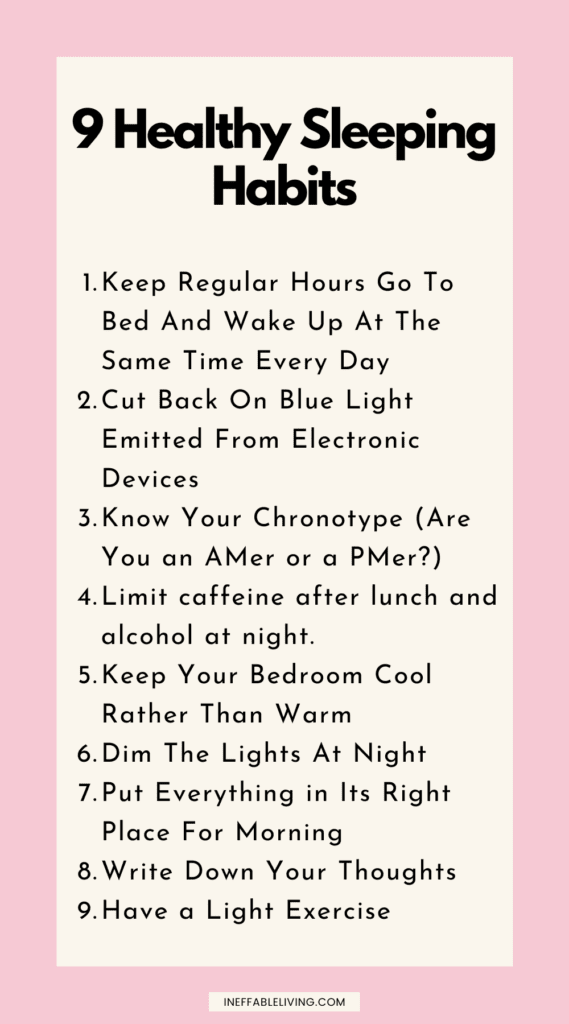
27. Transform Your Journey to Work
Use the opportunity to read, or listen to audio books. You can also use your commute to add more physical activity to your day. If you can, walk or bike, or park farther. Use the stairs instead of the elevator.
28. Give Up Your Seat
A simple act of kindness, not only brightens someone’s day, but also brightens yours. It will boost your mood considerably.
29. Try Something New
It can be joining a dancing class, learning a new language, etc. exposing yourself to unfamiliar experiences helps stretch your mental and physical horizons. It opens you to change and helps you loosen the grip of routine.
30. Forgive Freely
Holding a grudge affects the cardiovascular and nervous systems. In one study, people who focused on a personal grudge had elevated blood pressure and heart rates, as well as increased muscle tension and feelings of being less in control.
When asked to imagine forgiving the person who had hurt them, the participants said they felt more positive and relaxed and thus, the changes dissipated.
Related: Best 21 Forgiveness Journal Prompts (+FREE Worksheets PDF)
31. Do Less, Experience More
Living in a fast-paced world has put us under the constant pressure to do more in less time. As a result, we find little time to appreciate and enjoy the experience of being alive.
Reduce the number of your commitments. Slow down and take some time for yourself.
32. Be Kind to Yourself
“If your compassion does not include yourself, it is incomplete.” – Buddha
Be aware of your inner critic. Forgive your own mistakes and always speak to yourself in a kind manner.

33. See Life As a Journey – Not a Destination
When you focus on the destination (your future goals), you become anxious about your progress and how long it takes to reach your goals. Journey consciousness, on the other hand, allows you to appreciate the lessons that come to you along the way. You become more peaceful.
34. Act “As If”
Fake it, until you make it. Your mind is very suggestible. If you act as if you’re happy and free of stress, you’ll find yourself becoming exactly that.
One study revealed that facial expressions have a small impact on feelings.
For example, smiling makes people feel happier, scowling makes them feel angrier, and frowning makes them feel sadder.
35. Practice Gratitude
Gratitude is one of the main resilience skills.
Practicing gratitude is about noticing and feeling heartfelt appreciation, awe, and wonder for all of the good things in life. This also includes the mistakes and hardships that taught us valuable lessons.
Robert Emmons and Michael McCullough (2003), gratitude researchers, have found that the intentional practice of gratitude helps improve job and relationship satisfaction, and reduces pain, fatigue, inflammation, and depressive symptoms.
Shifting your attention to the good things in life is a powerful way to lift mood and feel joy.
How Can You Cultivate Gratitude?
Keep a Gratitude Journal
Every day, list up to five things you are grateful for from the previous twenty-four hours.
You can briefly describe each item of your list, and write about how it made you feel and what it means to you.
The point is to savor the feelings as you reminisce.
You might write about:
* Funny or pleasant moments (such as the time you spent with a loved one, engaging in a hobby, watching a movie, reading a good book, having a supportive conversations, or recalling moments that made you smile)
* Accomplishments (yours and others’)
* Something you learned
* Things in progress you’re excited about (goals, possibilities to anticipate)
* A random act of kindness (provided by you or by others)
* Personal strengths
* Etc.
You can also add photos, quotations, or other mementos to your journal.
Related: How To Practice Gratitude When Depressed? (10 Practical Gratitude Exercises)
Thank Someone
Whether it was someone who performed a random act of kindness towards you or someone who has touched your life for the better, always express your gratitude.
Write a gratitude letter, send gratitude cards, or send a small gift.
Expressing gratitude tends to give a greater burst of happiness than journal writing.
Self-Care Tools
- FREE Self-Care Worksheets
- Coloring Mandala
- Self-Care Bingo
- + 100 Journaling Prompts
- Habit Tracker
- The Big List of Self-Care Ideas
- Self Care Plan
How to Make Time for Self-Care?
Making time for self-care is essential for maintaining your well-being. Here are some strategies to help you incorporate self-care into your daily routine:
1. Prioritize Self-Care
Understand that self-care is not a luxury but a necessity for your mental and physical health.
Learn to say no to additional responsibilities or commitments that can interfere with your self-care time.
2. Schedule It In
Set aside specific times in your day or week dedicated to self-care activities.
Write down your self-care activities in your planner or calendar to ensure you make time for them.
3. Incorporate Self-Care into Daily Tasks
Combine self-care with daily activities, like listening to your favorite music while cooking or practicing deep breathing during a commute.
4. Set Realistic Goals
Start with small, manageable self-care activities and gradually increase the time you dedicate to them.
Adjust your self-care activities based on your current schedule and needs.
5. Eliminate Time-Wasters
Reduce time spent on activities that don’t contribute to your well-being, like excessive social media use.
If possible, delegate tasks to others to free up more time for self-care.
6. Combine Self-Care with Social Time
Engage in self-care activities with friends or family, like going for a walk, exercising, or cooking together.
7. Use Technology
Utilize apps that provide reminders and guidance for self-care activities, such as meditation, exercise, or journaling.
8. Create a Relaxing Environment
Designate a space in your home where you can relax and practice self-care without distractions.
9. Stay Consistent
Consistency is key. Try to make self-care a non-negotiable part of your daily routine, just like eating or sleeping.
Conclusion
Life can be hard at times.
And challenges can tax your emotional health.
This is why you need to start taking care of yourself to navigate stressors in a healthy and productive way.
References
- Self-care research: Where are we now? Where are we going? – ScienceDirect
- The experience of self-care: a systematic review – PubMed (nih.gov)
- Self-care: A concept analysis – PMC (nih.gov)
- What Is Self-Care and Why Is It Critical for Your Health? | Everyday Health
- International Center for Self-Care Research | (selfcareresearch.org)
- Self-care has never been more important (apa.org)
- Self care interventions to advance health and wellbeing: a conceptual framework to inform normative guidance | The BMJ
- Frontiers | The Role of Self-Care Activities (SASS-14) in Depression (PHQ-9): Evidence From Slovakia During the COVID-19 Pandemic | Public Health (frontiersin.org)
- The unspoken truth about self-care (apa.org)
